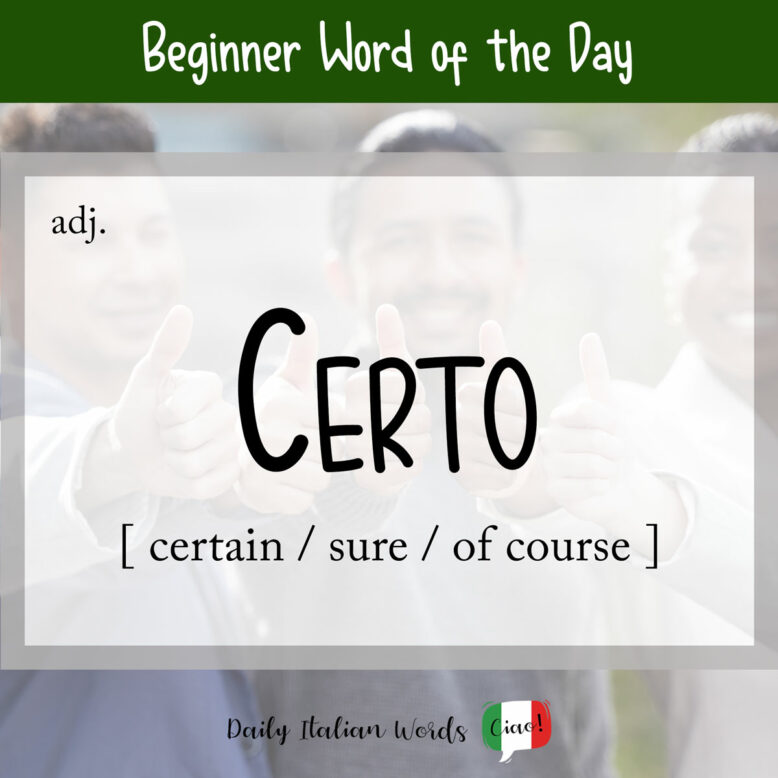Certo is the Italian word for certain or sure. It derives from the Latin certum, the past participle of cernĕre meaning “to distinguish”.

Being an adjective, its form changes to match the gender and/or number of the noun it describes.
- certo = masculine, singular
- certa = feminine, singular
- certi = masculine, plural
- certe = feminine plural
We should start out with some good news for English speaking learners: certo covers more or less the same scope of meaning as the English certain. In some cases, it can mean definite or sure (e.g. un fatto certo = a certain fact), whereas in others, it translates as guaranteed (un risultato certo = a guaranteed result) or convinced (e.g. essere certo = to be certain).
Sono certo che verranno stasera.
I’m certain they will come tonight.
Certo and certain can also replace the words “some”, “a bit” or “particular” in some cases. For example:
- a un certo punto = at a certain / particular point
- avere un certo appetito = to have a certain / a bit of an appetite
- dopo un certo tempo = after a certain (amount) of / some time

You may also see certo used as a masculine noun with the meaning of certainty, especially in the idiomatic phrase lasciare / abbandonare il certo per l’incerto (to leave certainty behind), or as a pronoun meaning certe persone or certa gente “certain people“.
Certi arrivano sempre in ritardo.
Certain people always arrive late.
In some cases, it can even be used as an adverb with the meaning of “certainly“.

When you place certo or certain in front of a person’s name, you are implying that he or she is not known to the reader or hearer (e.g. una certa signora Rossi = a certain Mrs. Rossi).
Last but most definitely not least, certo is how you would translate “of course” into Italian. It may appear on its own as an exclamation, or followed by che (that) and a subordinate clause.
Certo che puoi venire con noi!
Of course you can come with us!
You will often hear people exclaim Ma certo! (Why of course!) as a positive response to questions or requests.
To end this article, let’s take a look at a few very common expressions in which certo appears:
- di certo = certainly, definitely
- per certo = for certain
- in un certo senso = in a certain way, somehow
- per un certo verso = to a certain extent
- un certo non so che = a certain something
Heather Broster is a graduate with honours in linguistics from the University of Western Ontario. She is an aspiring polyglot, proficient in English and Italian, as well as Japanese, Welsh, and French to varying degrees of fluency. Originally from Toronto, Heather has resided in various countries, notably Italy for a period of six years. Her primary focus lies in the fields of language acquisition, education, and bilingual instruction.


